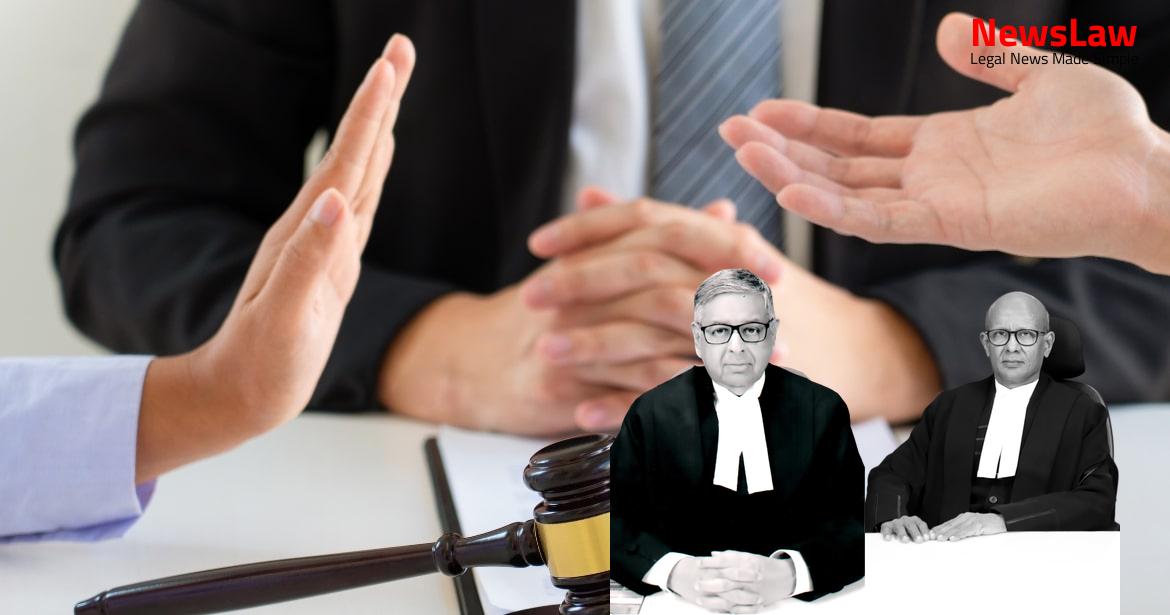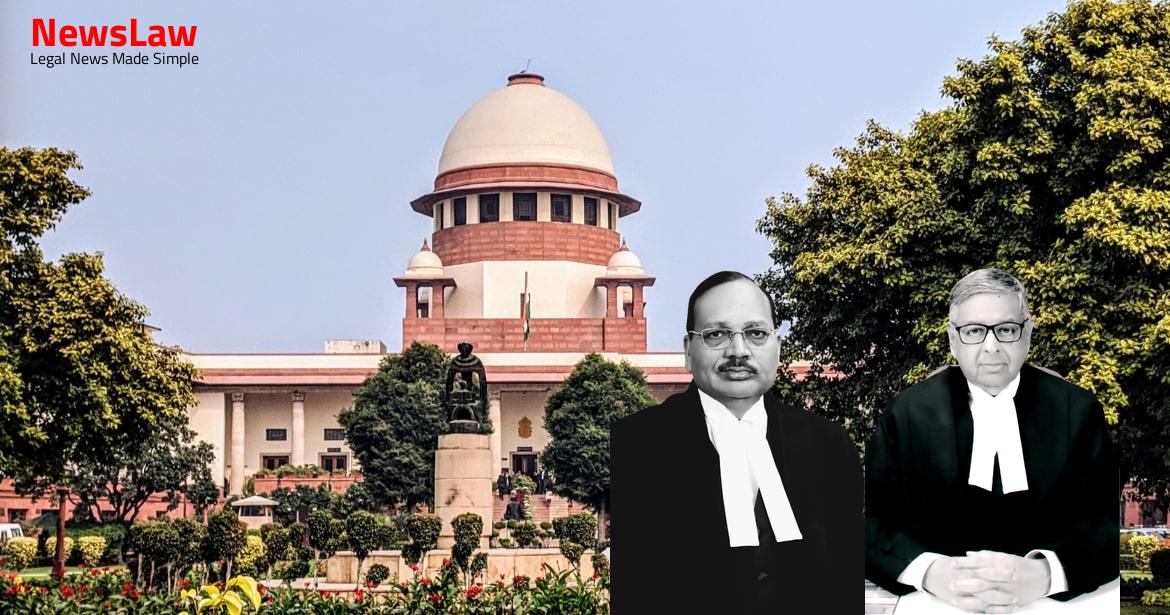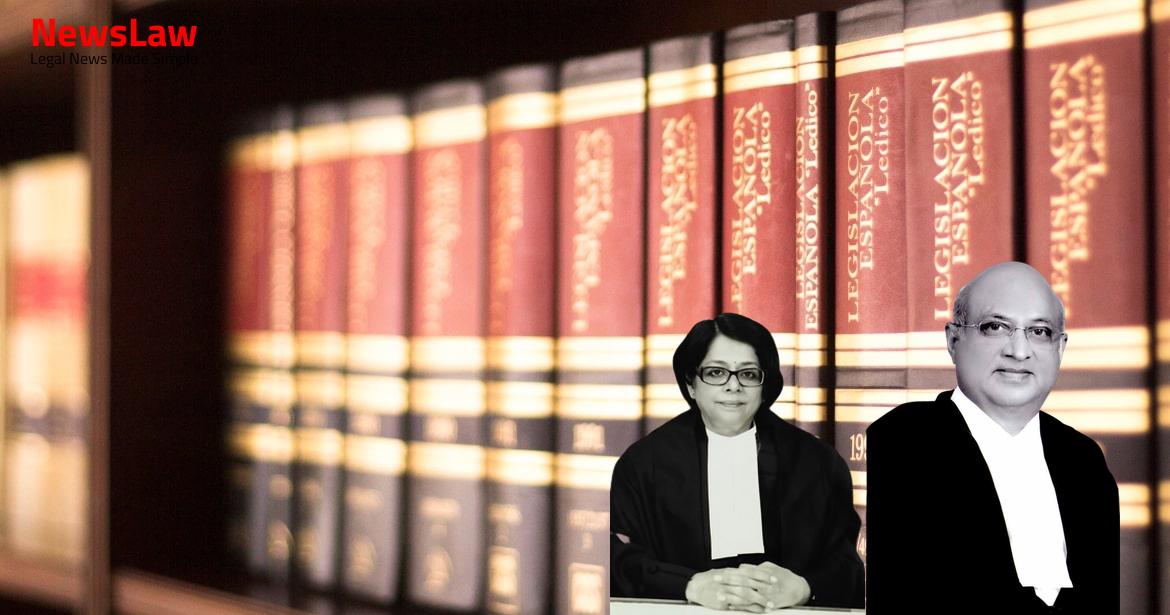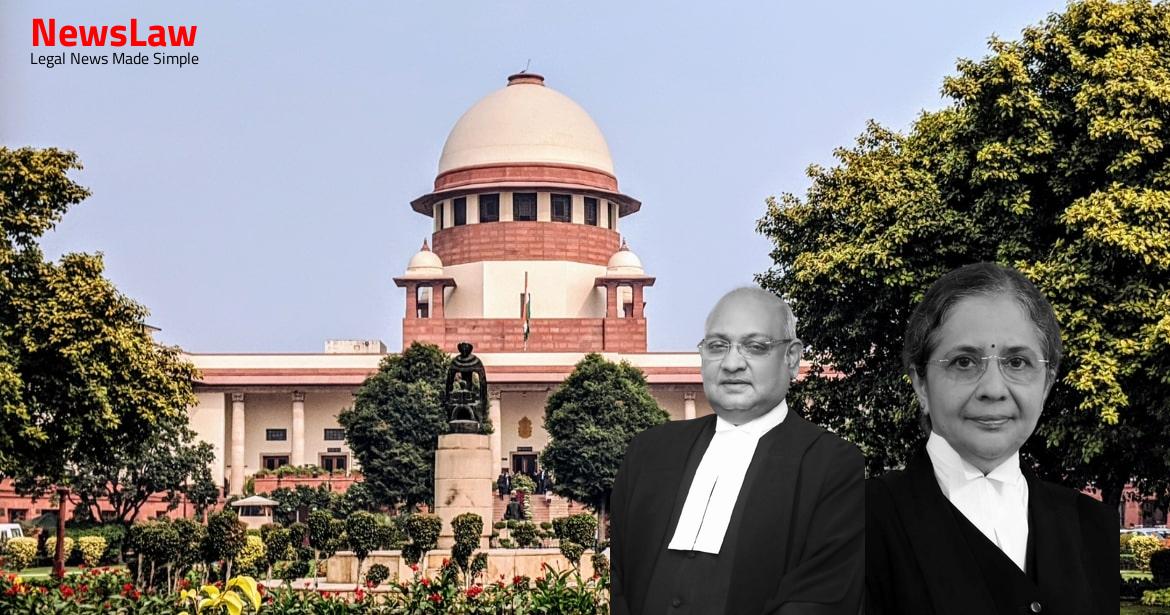In the case of Criminal Revision No 101 of 2019, the appellants were charged with deceitfully obtaining approval from AICTE and violating AICTE rules. The Central Bureau of Investigation (CBI) approached the High Court seeking relief under Section 482 Cr.P.C. The appellants, as Chairman and Secretary of the Society, moved applications on behalf of the Society, resulting in a complex legal battle. Stay tuned to learn how the High Court’s decision impacts the case and the appellants’ legal standing.
Facts
- An anonymous complaint was made to the Chief Vigilance Commissioner alleging favoritism to the Society by AICTE officials.
- Criminal Revision No 101 of 2019 was filed by the appellants before the Additional Sessions Judge in Ghaziabad.
- A case crime was registered against the appellants and unnamed AICTE officials by the CBI for deceitfully obtaining approval violating AICTE rules.
- Central Bureau of Investigation (CBI) approached the High Court seeking relief under Section 482 Cr.P.C.
- Appellants also filed a separate application seeking quashing of criminal proceedings.
- The applications suggested contradiction as no AICTE official was charged in the approval process.
- Appellants, as Chairman and Secretary of the Society, moved applications on behalf of the Society.
- Bail was granted to the appellants on 02.07.2018.
- Charge Sheet No. 11 of 2012 was filed by CBI naming only the appellants as accused.
- Society applied for approval to start the ‘International Business School of Delhi’.
- The appellants were discharged of charges under Sections 420 and 120B IPC by the Special Judicial Magistrate, CBI Court, Ghaziabad.
- CBI filed a petition under Section 482 Cr.P.C. before the High Court at Allahabad against the discharge order.
- The High Court allowed the petition and set aside the discharge order on 21.02.2021.
- Subsequently, the High Court directed the Magistrate to proceed with the case against the appellants.
Also Read: Bail Grant in NIA. vs. Shoma Kanti Sen Case
Analysis
- Section 415 IPC defines ‘Cheating’ and the elements required to establish cheating under the law.
- Section 420 IPC specifically deals with ‘Cheating and dishonestly inducing delivery of property’ and prescribes the punishment for such acts.
- Sections 120A and 120B IPC define ‘Criminal conspiracy’ and the punishment for being a part of such conspiracy.
- These legal provisions will be crucial in determining the case on its merits and establishing the elements of cheating and criminal conspiracy if applicable.
- The High Court found that the appellants deliberately withheld relevant information to obtain approval from AICTE for their colleges.
- The charge under Section 120B IPC does not stand judicial scrutiny as there was no evidence of deliberate deception or conspiracy by the appellants.
- The AICTE was fully aware of the encumbrance on the land, including the mortgage, yet still granted approval for the ‘Business School of Delhi’.
- The CBI filed a petition under Section 482 Cr.P.C long after the 90-day limitation period for revision under Section 397 Cr.P.C had expired.
- No evidence found of the appellants deliberately furnishing false information to AICTE to obtain approval for their educational institutions.
- The High Court allowed the CBI’s petition under Section 482 Cr.P.C despite objections raised by the appellants.
- The CBI found no involvement of AICTE officials in any wrongdoing and dropped provisions of the Prevention of Corruption Act in the charge sheet.
- The Trial Court discharged the appellants under Section 239 Cr.P.C due to lack of evidence to make out an offence of cheating against them.
- In the case of Ram Jas v. State of U.P., the essential elements of the offence of cheating were defined, including fraudulent or dishonest inducement, deception leading to delivery of property or consent to retain property, intentional inducement to do or omit an act, and resulting harm to the deceived person’s body, mind, reputation, or property.
- The inherent power of the Court can be exercised when there is no explicit remedy provided in the Code of Criminal Procedure for redressal of grievances.
- Courts are entitled to exercise inherent power under Section 151 of the Code of Civil Procedure when there is no specific provision in the Code to challenge the impugned order.
- The inherent powers of the court are supplementary to the powers expressly conferred by the Code and are to be exercised in a manner consistent with the Code’s procedures and legislative intent.
- The court’s inherent jurisdiction should not be used in a way that contradicts or undermines the provisions of the Code of Civil Procedure.
- The High Court concluded that the appellants were guilty of deliberately withholding relevant information to secure approvals through deceitful means.
- The admitted facts indicate that the mortgage was disclosed at the outset when the first application was made, contradicting the High Court’s finding.
- There is no evidence to suggest that the appellants conspired to suppress information in order to secure approvals.
- The AICTE did not claim it was dishonestly induced to grant the approvals, weakening the basis for criminal charges of cheating against the appellants.
Decision
- The appellants have been discharged of the alleged offence under Sections 420 and 120B IPC in Case Crime No 219 of 2011 (E) 0016.
- The criminal appeal has been allowed, resulting in the restoration of the order of discharge passed by the learned Special Judicial Magistrate, CBI Court, 17 Ghaziabad, in Case No 456 of 2012.
- The impugned order dated 20.01.2023 passed by the Allahabad High Court in Application U/S 482 Cr.P.C No 11426 of 2021 has been set aside.
- Pending applications in relation to the case shall stand closed.
Also Read: Adani Power Rajasthan Ltd. vs. Rajasthan Discoms: Late Payment Surcharge Dispute
Case Title: VIPIN SAHNI Vs. CENTRAL BUREAU OF INVESTIGATION (CBI) (2024 INSC 284)
Case Number: Crl.A. No.-001980-001980 / 2024



